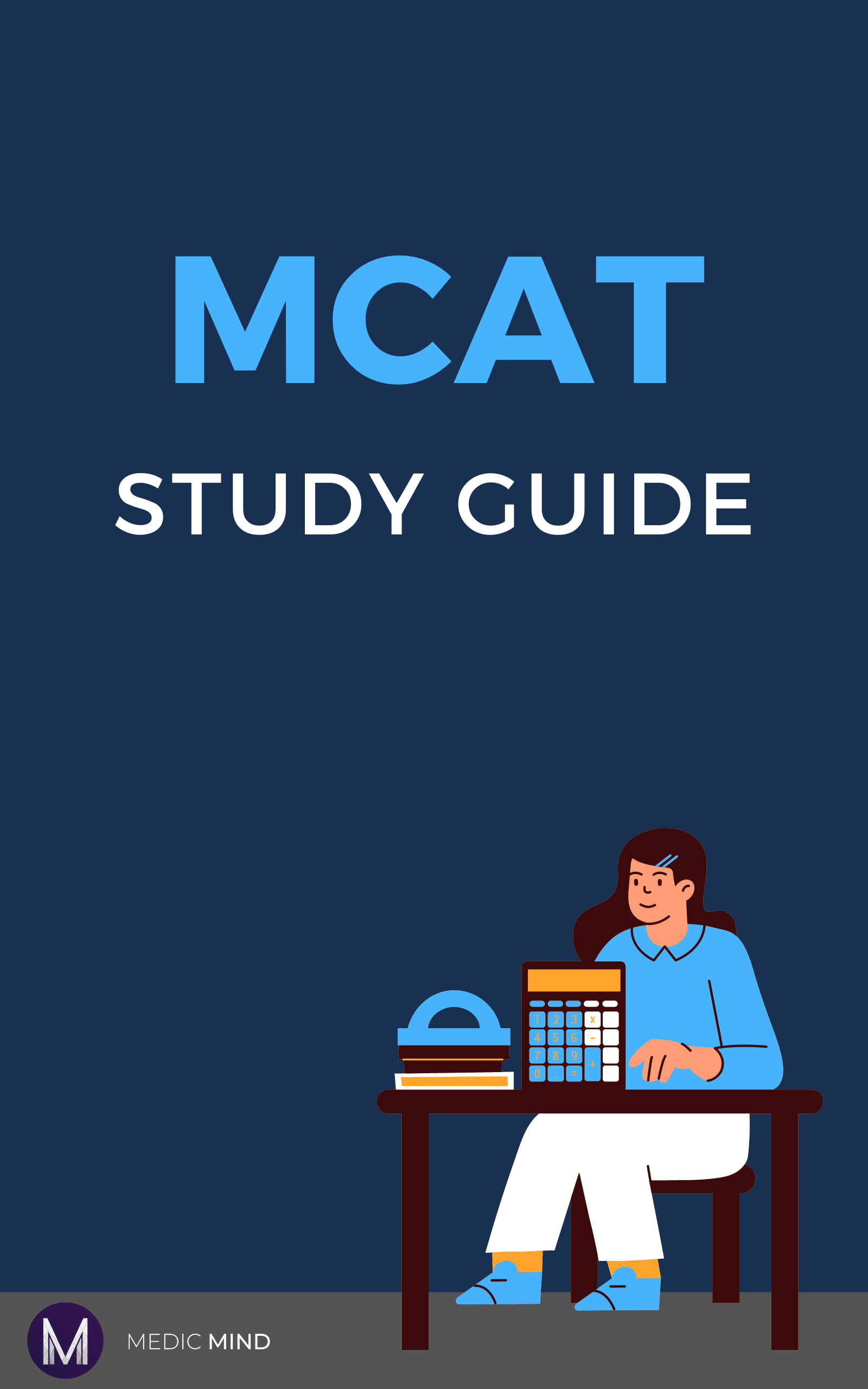
2-month MCAT Study Plan
Are you dreaming of acing the MCAT? With just two months to go, buckle up for a whirlwind journey of focused study. This comprehensive guide will equip you with a strategic plan to tackle the MCAT head-on. No time to waste, but don’t panic! We’ll break down the essentials, providing you with a roadmap for success.
Whether you’re a seasoned test-taker or just starting, this plan is tailored to maximize your potential.
Week 1: Diagnostic and Foundation Building
During the first week of your 2-month MCAT study plan, your primary focus should be on establishing a solid foundation and understanding your starting point through a diagnostic exam. Here’s a detailed breakdown of what to expect and how to approach this crucial stage:
Diagnostic Exam Administration
- Begin by taking a diagnostic exam to assess your current knowledge and skills across all MCAT sections.
- Choose a reputable diagnostic exam from a trusted source to ensure accuracy and relevance.
- Allocate sufficient time and create a conducive environment for taking the exam to simulate real testing conditions as closely as possible.
Analyzing Diagnostic Results
- Once you’ve completed the diagnostic exam, thoroughly analyze your results to identify strengths and weaknesses in each MCAT section.
- Pay close attention to areas where you performed well and those where you struggled the most.
- Use detailed score breakdowns to pinpoint specific content areas or question types that require improvement.
Weeks 2-5: Progressive Skill Enhancement
| Week | Focus Areas | Study Techniques |
| Week 2 | Biology and Biochemistry | – Review cellular processes and biochemical pathways. |
| – Create flashcards for key terms and concepts. | ||
| – Complete practice questions on genetics and molecular bio. | ||
| – Watch instructional videos for visual reinforcement. | ||
| Week 3 | General Chemistry and Organic Chemistry | – Review chemical reactions and bonding principles. |
| – Practice organic chemistry mechanisms with flashcards. | ||
| – Solve practice problems on stoichiometry and kinetics. | ||
| – Work through challenging topics with a study group. | ||
| Week 4 | Physics and Behavioral Sciences | – Review physics formulas and concepts of motion. |
| – Use online simulations to understand complex physics topics. | ||
| – Study behavioral sciences topics through case studies. | ||
| – Analyze research articles to enhance critical thinking. | ||
| Week 5 | Comprehensive Review and Practice | – Review all content areas covered in previous weeks. |
| – Take full-length practice exams to simulate test conditions. | ||
| – Analyze practice exam results to identify areas of weakness. | ||
| – Focus on time management and test-taking strategies. |
Weeks 6-7: Refinement and Practice
As you approach the final stretch of your 2-month MCAT preparation, weeks six and seven are crucial for refining your skills and maximizing your readiness for the exam. Here’s a focused plan to help you make the most of this period:
Targeted Review Sessions:
- Dedicate specific study sessions to reviewing challenging topics and addressing areas of weakness identified during previous weeks.
- Use targeted resources such as review books, online tutorials, and flashcards to reinforce your understanding and clarify any lingering doubts.
- Prioritize concepts or question types that you find particularly difficult, ensuring thorough comprehension before moving forward.
Intensive Practice Exams:
- Increase the frequency of full-length practice exams to mimic the test-day experience and build stamina for the rigorous exam format.
- Utilize free MCAT Practice Tests 2024 to expose yourself to a variety of question types and difficulty levels.
Performance Analysis:
- After each practice exam, conduct a thorough analysis of your performance to identify patterns of strengths and weaknesses.
- Pay close attention to timing, accuracy, and endurance to pinpoint areas for improvement and adjustment in your study approach.
Strategic Test-Taking Strategies:
- Develop and refine test-taking strategies tailored to each MCAT section, including time management techniques and question prioritization.
- Experiment with different approaches to tackling difficult questions, such as process of elimination, educated guessing, and strategic skipping.
- Practice active reading and critical thinking skills to enhance comprehension and accuracy, particularly in the Critical Analysis and Reasoning Skills (CARS) section.
Simulated Test Conditions:
- Replicate test-day conditions as closely as possible during practice exams, including timing, breaks, and environmental factors.
- Practice mindfulness and stress-management techniques to maintain composure and focus under pressure, simulating the intensity of the actual exam environment.
Continuous Feedback Loop:
- Maintain open communication with study partners, MCAT tutors, or mentors to solicit feedback on your progress and performance.
- Actively seek advice and guidance from experienced individuals who can offer valuable insights and strategies for success on the MCAT.
By committing to targeted refinement and intensive practice during weeks six and seven, you’ll be well-positioned to approach the MCAT with confidence and competence. Stay disciplined, stay focused, and trust in your preparation as you strive for excellence on test day.
Conclusion:
In conclusion, mastering the MCAT in just two months is an ambitious yet achievable goal with dedication and strategic planning. By following a structured study plan, utilizing high-quality resources, and practicing consistently, you can maximize your chances of success on test day.
Remember, persistence pays off, and every step you take brings you closer to your dream of medical school acceptance. For personalized guidance and support from expert MCAT tutors, consider partnering with Medic Mind. Your success awaits – seize the opportunity today!
FAQs
Is two months really enough time to prepare for the MCAT?
While two months can be sufficient for focused and intensive study, it ultimately depends on your starting point and individual circumstances. Those with a strong foundation in the tested subjects may find it more manageable, whereas others may require additional time for thorough review and practice. It’s essential to assess your readiness and commit to a study plan that aligns with your goals and timeline.
How many hours per day should I dedicate to MCAT preparation?
Ideally, aim for a minimum of six hours per day, six days a week, to cover the necessary content and practice adequately. However, the specific hours may vary based on your schedule, learning style, and personal commitments. Remember to prioritize quality over quantity, ensuring that each study session is focused, productive, and effective in advancing your MCAT readiness.
Should I prioritize content review or practice questions during my study plan?
Both content review and practice questions are essential components of MCAT preparation and should be balanced throughout your study plan. Start with a solid foundation of content review to ensure understanding, then integrate regular practice questions to reinforce learning and improve test-taking skills. Striking the right balance between the two will optimize your preparation and readiness for the exam.
How do I stay motivated during the intense study period?
Maintaining motivation during MCAT preparation can be challenging, but setting clear goals, tracking progress, and rewarding yourself for milestones achieved can help. Break down your study plan into manageable tasks, visualize success, and surround yourself with a supportive study group or community for encouragement and accountability. Remember your ultimate goal of pursuing a career in medicine, and let that drive your dedication and commitment.
How can I ensure optimal performance on test day?
To maximize your performance on test day, prioritize self-care in the days leading up to the exam, including proper sleep, nutrition, and stress management. Familiarize yourself with the testing environment, logistics, and exam format to minimize surprises or distractions. Trust in your preparation, maintain a positive mindset, and approach each question with confidence and focus. Remember that your hard work and dedication have prepared you for success, and trust in your abilities to shine on test day.








Was this article helpful?
Still got a question? Leave a comment